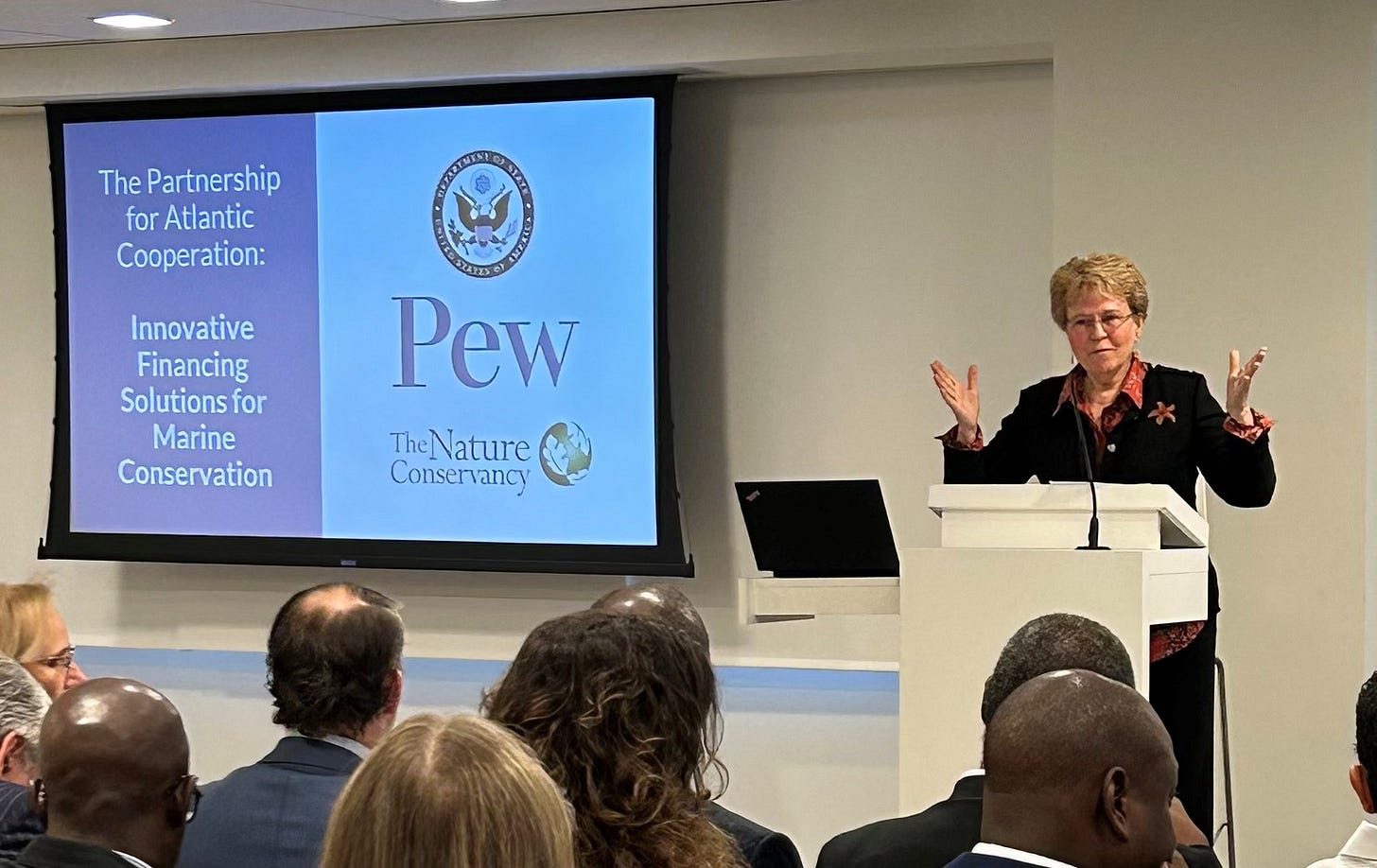Jane Lubchenco: The Ocean Is Too Important to Ignore
The former NOAA Administrator reflects on her lifelong love of the ocean, its power to heal the planet and why it’s time to stop taking science for granted.
When Dr. Jane Lubchenco speaks about the ocean, she radiates both joy and urgency. A renowned marine ecologist and former NOAA Administrator, Lubchenco joined the Scientista Podcast to share what first drew her to the sea, why our oceans are at a turning point, and what it will take to protect this vast and vital resource.
It started with invertebrates. As a college student in her early twenties, Lubchenco took a course at the Marine Biological Laboratory in Woods Hole, Massachusetts—the same institution that launched the career of Silent Spring author Rachel Carson. “I was just blown away,” she recalls. “It was love at first sight.”
Since then, her career has spanned decades of science, policy, and leadership, including her service as the first woman to lead NOAA (the National Oceanic and Atmospheric Administration). But the awe she felt that summer hasn’t faded and neither has her sense of mission.
Lubchenco is quick to remind listeners just how important the ocean is to life on Earth. It covers 71% of the planet’s surface and over 95% of its living space. “We used to think the ocean was so vast it couldn’t be harmed,” she says. “But we now know it’s vulnerable—and under enormous pressure.” From plastic pollution and coral bleaching to overfishing and acidification, the ocean is in trouble. And yet, she insists, there’s hope.
“There’s a new narrative emerging,” she explains. “It’s not that the ocean is too big to fail or too big to fix. It’s too important to ignore.”
That message comes through powerfully in Ocean, the latest documentary from Sir David Attenborough, who, at 99, is still making films that shape public understanding. Lubchenco was at the London premiere, where Attenborough described it as “the most important film I’ve ever made.” The documentary unfolds in three acts: the beauty of ocean life, the devastation it faces, and the remarkable recovery that’s possible when marine areas are protected. “If we save the sea,” Attenborough declares, “we save our world.”
Lubchenco agrees. She points to growing scientific evidence that the ocean can be a source of solutions to climate change not just a victim of it. Offshore wind, green shipping, and protecting “blue carbon” habitats like mangroves and seagrasses could deliver up to one-fifth of the emissions reductions needed to meet the Paris Agreement goals.
And the benefits go beyond climate. With more sustainable fishery management and aquaculture practices, we could produce up to six times more seafood than we do today, feeding a growing population without exhausting our oceans.
But all of this depends on something increasingly at risk: science itself.
Lubchenco speaks with heartbreak and anger about recent attacks on federal agencies like NOAA. “These agencies are under siege,” she says. “We’re losing brilliant, dedicated civil servants—people who give us better weather forecasts, protect marine mammals, and enable sustainable fisheries. We take their work for granted, but we shouldn’t.”
And while much of the burden has shifted to local leaders, she argues that federal leadership is still critical. “We need all hands on deck. Cities, states, religious groups, business leaders—they’re stepping up. But we can’t afford to leave the federal government behind.”
Despite the challenges, Lubchenco remains hopeful. She draws strength from nature, family, and from a moment on a steep mountain hike as a Girl Scout in Colorado. Faced with a false summit, their leader told them to turn around and see how far they had come. “That stuck with me,” she says. “When things get hard, I remember to look back. We’ve made progress. We can go the rest of the way.”
The ocean is not a lost cause. It’s a powerful ally. But we must act urgently, collectively, and based on science.
As Lubchenco puts it: “The solutions exist. The question is: Will we use them?”




